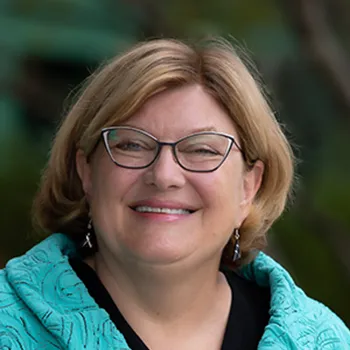Recently, I attended a conference for founder level advisors, and found it incredibly insightful. While I won’t recap everything we covered, I do want to share some of the advice given around teaching children and grandchildren how to responsibly handle money. I truly believe that giving our children and grandchildren knowledge and instilling good financial habits is one of the greatest gifts we can bestow. My own parents did that for me, and I tried to teach my children the same lessons.
Finding your values
One of the speakers was Scott Donell, who gave a presentation called “Waging War on Entitlement.” Scott has a couple of apps (Gravystack and Dinner Table) and he spends a lot of time focusing on how families can instill meaningful values in children.
He said that 93% of the time we spend with our kids is before they turn 18 — and as a mother whose kids are out of the house, I can attest that’s true. I still spend time with my children, of course, but that day-to-day constant presence is over. So it’s critical that in those first 18 years, we spend time sharing and creating values in our kids.
When we focus on teaching kids principles to live by, such as integrity, accountability, kindness, and stewardship, the principles about money will follow. They’ll want to do things like earn their own way and donate to causes they believe in, because they’ll be living the principles they’ve been taught.
One way to instill these values is to openly discuss them. Talk about why you make the money and other decisions you do and how they help you live life in a way that’s meaningful. That could be as small as “I always buy generic groceries instead of name brand because it’s important to me to be conservative with my money” to as large as “I chose this job because it allows me to earn a living in a way that feels ethical.” Take opportunities as your kids face decisions to help them think about what actions they can take that align with their values, and discuss these situations openly and honestly. Doing so as children helps them have a solid foundation for the rest of their lives.
The allowance myth
One of the ideas that resonated most with me is the idea that you should NOT give your kids an allowance. An allowance, Scott said, is an entitlement – money given but not earned. Instead, kids should have chores that they do as part of living in the house. This shows them that just being a member of a family or society doesn’t earn money.
On top of that, he suggested offering “gigs” that come with a set wage. These gigs would be over and above expected daily tasks like doing the dishes. Think cleaning out closets or gutters, clipping grocery coupons, etc. Of course, different gigs may pay a different wage. He says the conversation will go from kids hating chores to wanting gigs.
Grandparents can do this too! When the grandkids come to visit, have gigs ready for them. Maybe that’s clipping coupons, helping you with things on the computer, or painting a room. Truly anything can be a gig that makes sense for your family. I remember visits to my grandparents where I shined shoes and could then spend my earnings at the ice cream truck. It was fun!
Gradually and in age-appropriate ways, make kids responsible for more of their expenses. This could start small, like having them use money for birthday or Christmas gifts for other people, and increase as they get older to include entertainment, “fancy” clothes, etc. My sister’s children are a good example. The kids have been working hard in middle school and high school — in academics, extra curriculars, and in paying jobs. Over the years, my sister and her husband have made their kids responsible for many of their expenses. My niece, a junior in high school, is responsible for many of her expenses and now has purchased her own car and is paying for the upkeep required. This young lady is set up to handle the next challenges that come.
The whole goal with this approach is to help children develop the confidence and capabilities they need to earn and manage their money as successful adults. As much as we might want to protect our loved ones from any pain or struggle, it’s inevitable. Preparing our children to navigate those struggles is an incredible expression of our love for them.
Leaving a legacy
Money is a tool, but too often we think of it as an end point. A lot of my clients talk about how they want to leave something for their kids or grandkids, but really what they want to leave isn’t money – it’s value. It’s heritage. It’s a legacy.
Sharing stories that demonstrate your principles can be a significant part of your legacy. My husband’s grandfather was an incredibly family-oriented man. His own father had left the family and his mother and siblings had struggled, so my husband’s grandfather made it a point to be different. Knowing those stories, and why he behaved the way he did, left an imprint on generations to come, as everyone in that family continues to value being close.
My mother was an expert at sharing principle-based stories without us even realizing it at the time. My siblings and I could pick “gigs” from the chalkboard to earn money, and then were allowed to take our money to the dime store to buy candy. We’d spend so much time strategizing about what candy to get so we got the best value for our money, and it’s one of my most cherished memories. My mom would say to us, “What would you do if you found money on the road?” and talk us through the different scenarios. It was tempting to think “I’d take it to buy candy!” but by helping us think through our values, we knew honesty and hard work were way more important than a treat.
I try to remember that I will leave a legacy, no matter my intentions. People will remember me, my words, and my actions. If I’m intentional, I get to choose what that legacy is. Will people think of me as honest? Kind? Capable? Supportive? I hope so. And I hope my children leave their own legacy reflecting those values.

